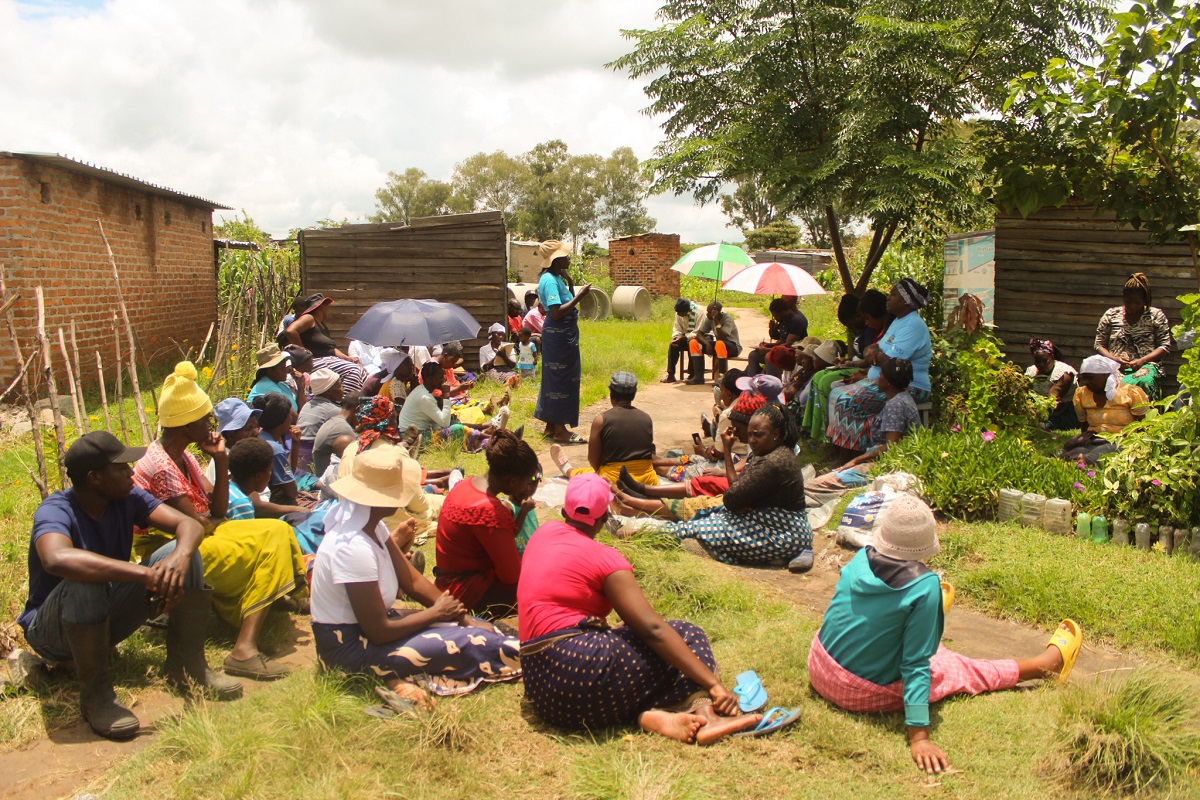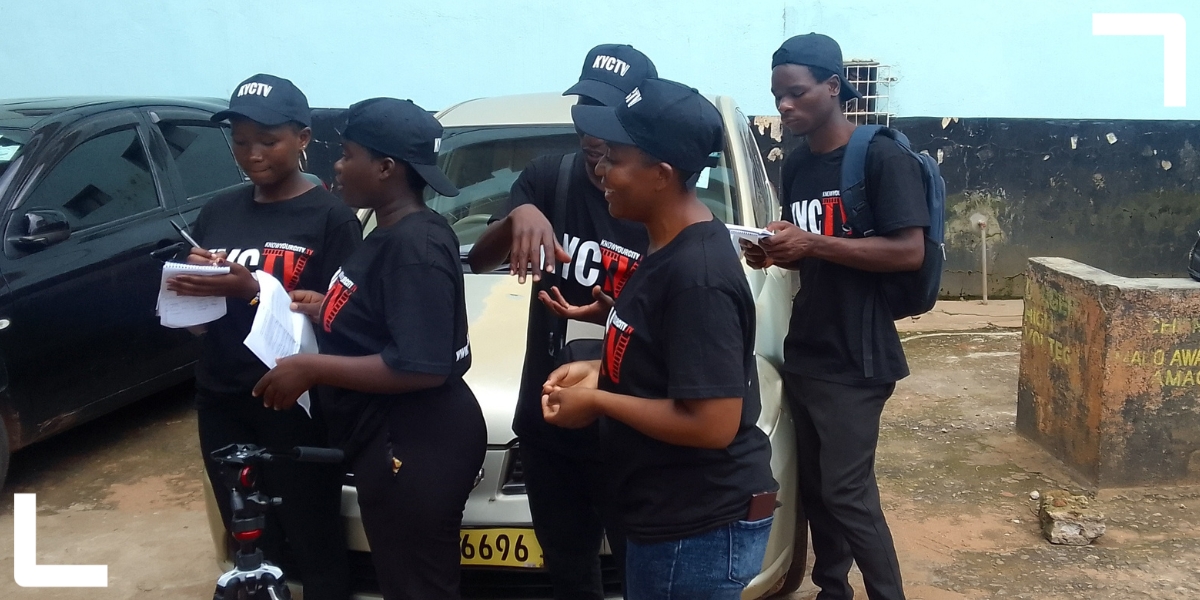The Covid-19 pandemic significantly affected marginalised communities worldwide, and there were especially profound impacts upon the economic, social and health conditions of informal settlement residents.
Communities living in informal settlements, such as Mathare Valley in Nairobi, were already facing challenging circumstances when the pandemic hit – including inadequate housing, high levels of poverty, limited social protections and the high cost of living – which made it difficult to protect themselves from the virus. The economic lockdown and restrictions on movement exacerbated these challenges, since many residents rely on informal livelihoods such as casual jobs, which were either halted or severely curtailed, leaving households with limited savings.
Schools in Nairobi were closed to contain the virus (only fully reopening in early January 2021), and some households were left unable to afford their rent and faced eviction. These interlinked challenges led to heightened insecurity and increasingly difficult living conditions in Mathare. While some support was provided by both civil society organisations and the government of Kenya during the pandemic – including cash transfers, soap, food, masks and sanitisers – not everyone in need received it.
As part of the Covid Collective programme, and with support from SDI-Kenya, Muungano wa Wanavijiji conducted research in Hospital Ward in Mathare, with the aim of assessing Covid-19’s impacts upon the community and its resilience in the post-pandemic recovery.
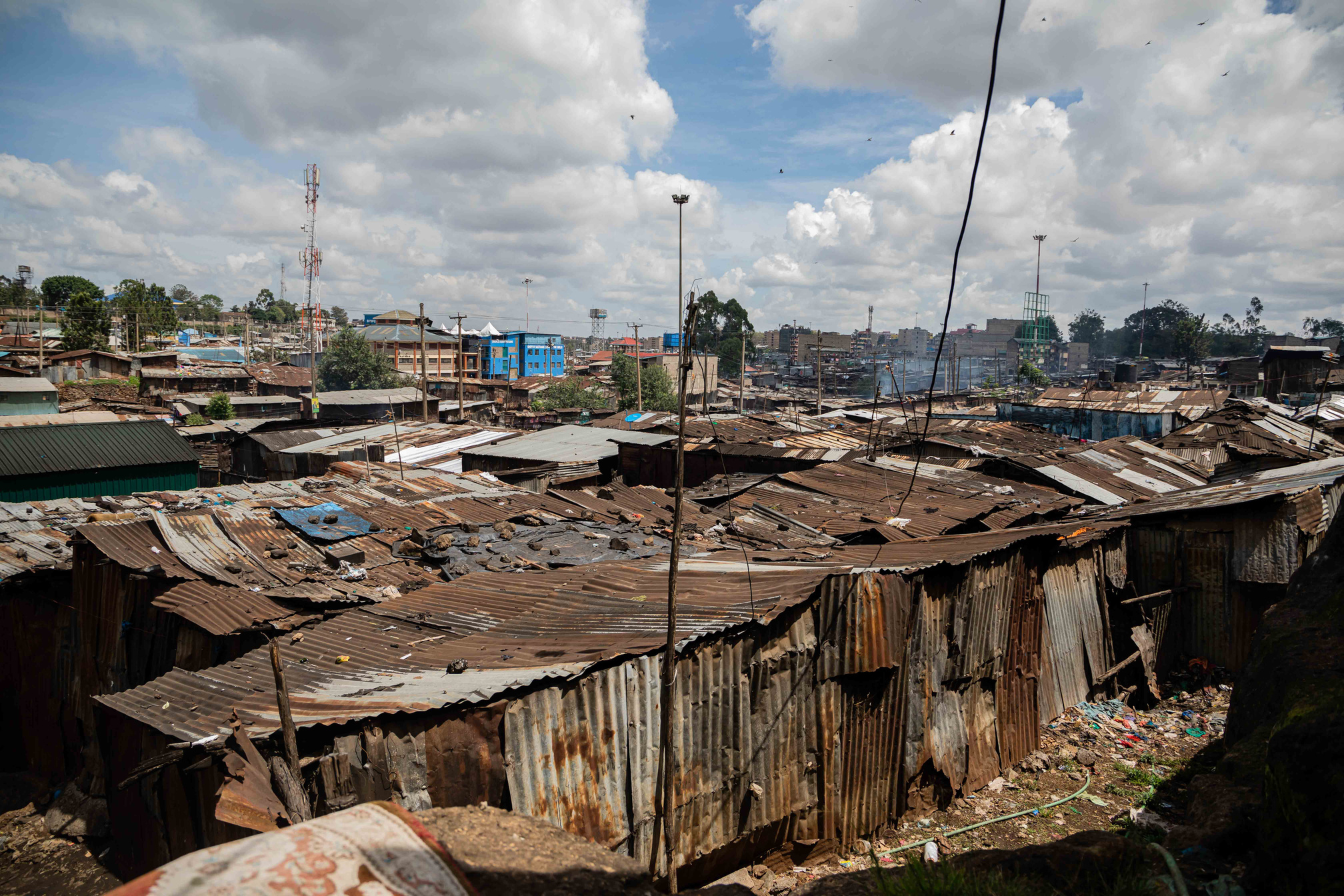
Finding ways to cope
We found that many community residents showed resilience during the Covid-19 crisis, such as innovative ways to enhance livelihoods, savings and food security. Savings groups played a key role and developed flexible strategies to support residents in crisis, including by reallocating their savings as emergency funds to manage financial difficulties. Muungano’s savings groups in Mathare often eliminated their requirement to save on a daily basis; instead, members save either weekly or twice per month, which is more affordable during a crisis. Additionally, other savings groups within the community eliminated the specific amount of money to be saved, allowing group members to save any amount of money they could. In a creative initiative to strengthen food security and savings groups, a group in Mathare’s Hospital Ward started a communal food fund (which has continued since 2021), asking members to contribute and share flour or other essential items.
Some residents also pivoted to new income sources, shifting their businesses to meet high demand for essential products like masks, sanitisers and soaps.
Our research also showed that community health volunteers (CHVs) were at the forefront of delivering care and disseminating vital information during the pandemic. They were actively involved in raising awareness around preventing transmission, conducting door-to-door campaigns (in partnership with Muungano wa Wanavijiji), and collaborating with health centres to ensure community members received Covid-19 vaccinations. After advocacy for greater recognition and support, CHVs in Nairobi were eventually able to receive monthly stipends.
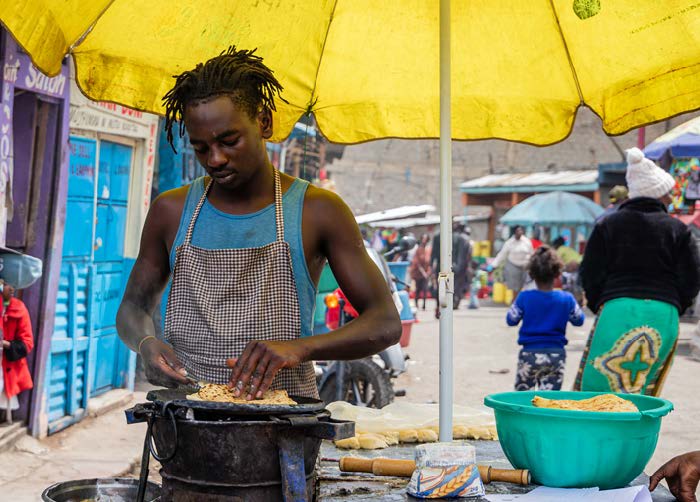
Capturing community experiences
A participatory research method known as “photovoice” was central to our study in Mathare. Supported by Muungano wa Wanavijiji, community co-researchers from Know Your City TV – SDI’s youth collective – were able to document experiences of Covid-19 in their settlements, during and after the pandemic. This involved taking photographs and sharing narratives to convey their experiences, with the aim of translating them into actionable knowledge.
The photos depicted challenges faced by residents, innovative solutions being implemented to address the crisis, and creative messages within the community about protecting against Covid-19.
Representatives from the three villages in Mathare’s Hospital Ward were tasked with choosing ten images for a special exhibition, organised by Muungano wa Wanavijiji with support from SDI-Kenya. Each image helped showcase the community members’ determination to overcome adversity and thrive in the face of uncertainty.
From the exhibited photos, three were chosen to highlight residents’ remarkable resilience during the pandemic. The selected photos depict a young man fetching water from pipes passing through sewers that pose a health risk, a group of children keeping themselves entertained with makeshift toys amidst school closures, and a young entrepreneur who lost his job during the pandemic and started a food kiosk selling chapati. The exhibition sparked crucial conversations, with community residents encouraged to reflect on lessons learned from the pandemic and discuss potential measures to prepare for future crises.
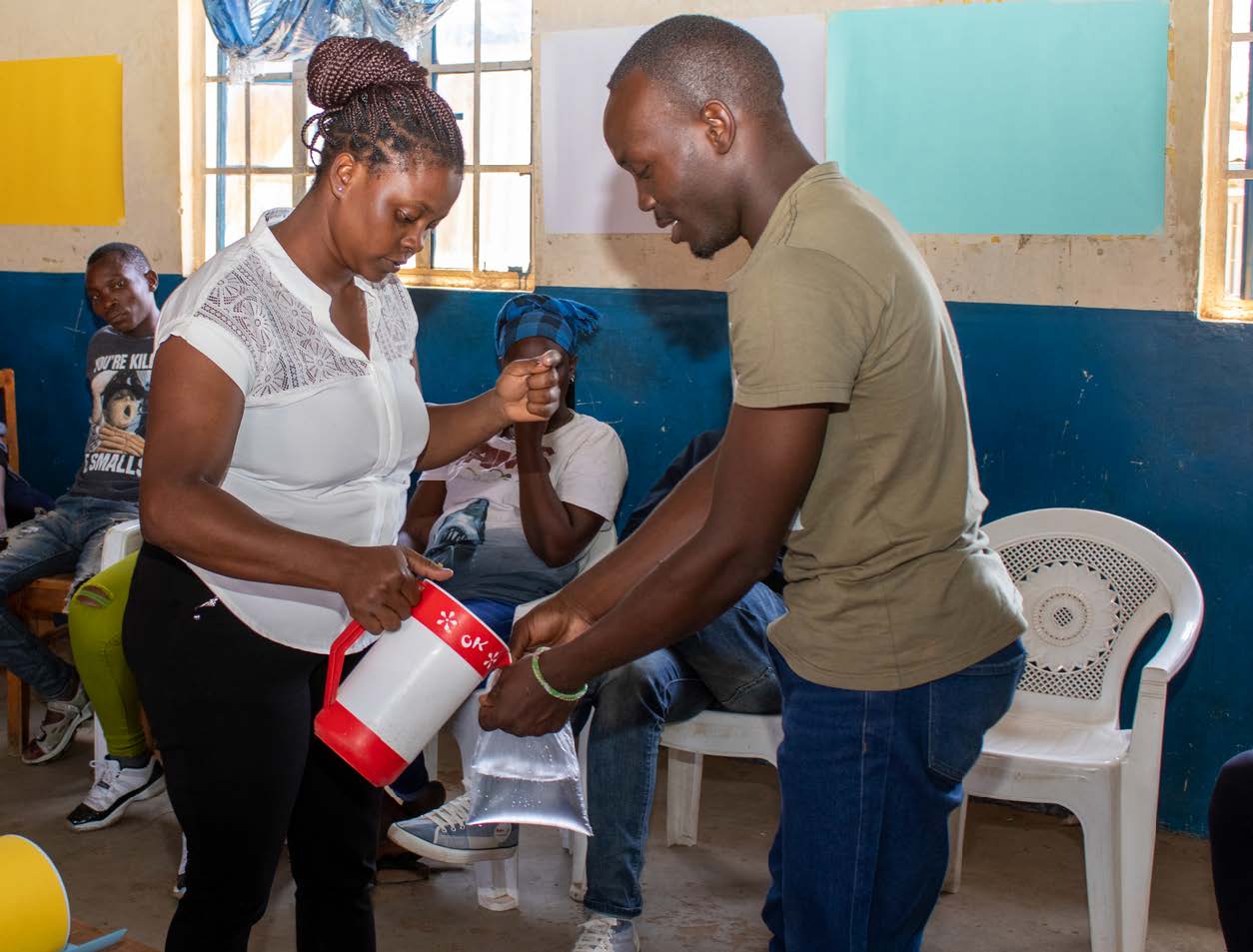
Supporting mental health and community resilience
SDI-Kenya and Muungano also provided an opportunity for art therapy, a wellness session led by CHVs that sought to promote mental health, especially for youth in Mathare. During the session, participants were able to create drawings and paintings, alongside reflections on vulnerability and other opportunities for creative expression. The youths and CHVs generated the slogan #BeYouDoYou to crystallise their commitment to mental wellbeing and supporting change in their communities.
As noted above, we found that savings groups can foster resilience by promoting food security, cushioning shocks and fostering solidarity, with benefits for individuals and the wider community.
While Covid-19’s impacts are still being felt in informal settlements, it is crucial to recognise the resilience, creativity and resourcefulness of the community in coping with crises, and to work towards implementing solutions to improve their quality of life and mental health in the long term.
This blog was originally published on the African Cities Research Consortium website.
